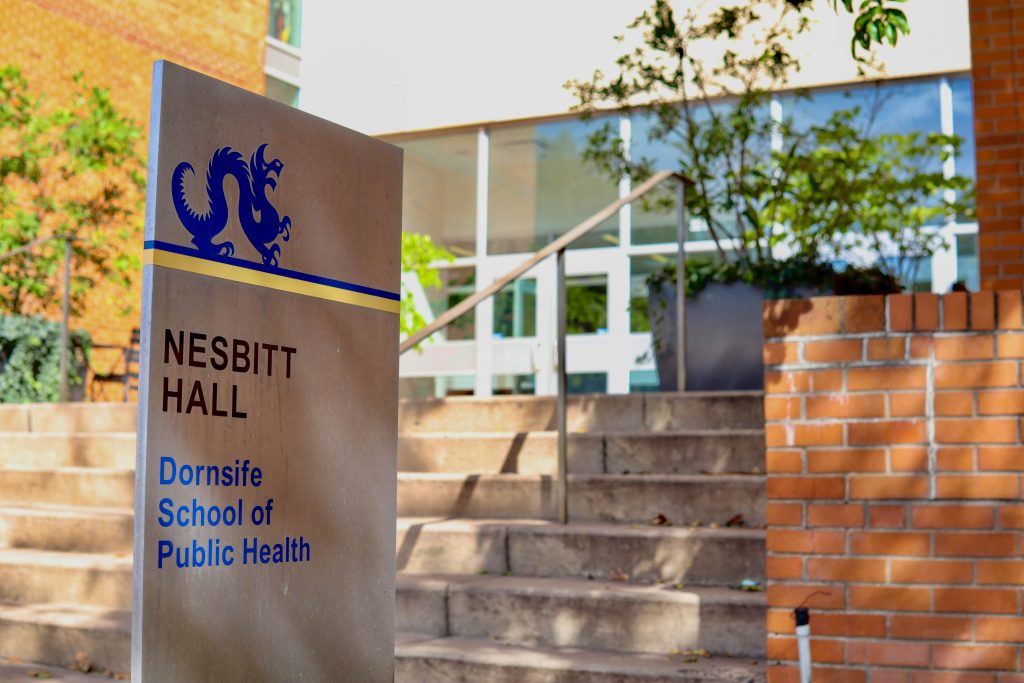
Dr. Brian Lee, a professor of epidemiology at Drexel University, coauthored one of the largest studies to date evaluating the safety of acetaminophen use during pregnancy, which concluded there is no causal link to the development of autism in children.
On Sept. 22, 2025, President Donald Trump advised pregnant women to avoid taking acetaminophen, stating without citing concrete scientific evidence that it was behind the rising rates of diagnosed autism. Secretary of Health and Human Services Robert F. Kennedy Jr. also criticized the National Institutes of Health, saying their “fruitless research” about the genetic drivers of autism was like “studying the genetic drivers of lung cancer without looking at cigarettes.”
Acetaminophen, known by the brand name Tylenol in the US, is widely regarded as the safest and lowest-risk medication for pregnant women to take. Scientists have been researching acetaminophen and autism separately and in conjunction for decades, with no studies proving a causal link. There have been studies that have shown an association, and many others that have not.
Dr. Lee was part of a 2024 study conducted by the Karolinska Institutet in Stockholm, Sweden, that examined 2.5 million mothers and their children in Sweden across two decades. The study found a small association between mothers who took acetaminophen during pregnancy and the risk of the child developing autism, ADHD or intellectual disability. However, Dr. Lee and many other scientists state that correlation or association do not necessarily indicate causation.
“Comparing children of acetaminophen users versus those of non-users is an apples to oranges comparison,” Dr. Lee said, citing an example: “Ice cream is associated with risk of drowning, but this is not causal: there is a third factor at play that is confounding this association — hot weather — which causes both increased ice cream consumption and one to go swimming, hence increased risk of drowning.”
“The thing that we cannot control for in any of the observational studies is what led pregnant women to take Tylenol in the first place,” said Dr. Diana Robins, professor and Director of the A.J. Drexel Autism Institute. “Nobody takes Tylenol for fun. You take it because you have a fever, aches and pains, or an illness. There is no way to test if that underlying illness could be a factor in causing autism or other developmental outcomes since you cannot control for that in an observational study.”
Dr. Lee’s study was one of the few that accounted for this possible confound by performing a sibling analysis: siblings born to the same parents were examined in the study, with one sibling exposed to acetaminophen and the other not.
“Because parents are the same in this comparison,” Dr. Lee said, “this removes familial factors like genetics and shared environment as things that could possibly confound [the results].”
After accounting for these underlying factors, the study found no causal link between maternal acetaminophen use during pregnancy and the child developing autism.
“The president is spreading misinformation […] I don’t think the recent announcements change anything with how pregnant women should consider acetaminophen,” Dr. Lee said. “In general, medication should be used at the lowest dose possible for the shortest duration possible and should be done always with the consultation of a physician.”
Many clinicians and scientists have come forward since Trump’s press conference to speak out against not only unsubstantiated claims surrounding autism and its causes, but also the language that is used to describe those with autism and how easily the conversation surrounding autism development can turn into placing blame on mothers during pregnancy.
Medical professionals urge pregnant women not to let fevers or severe pain go untreated, as those conditions can be life-threatening for both the mother and child. Dr. Robins warns against immediately trusting statements made in the media during a time in which misinformation, especially health-related misinformation, can spread extremely quickly.
“What one person who isn’t a trained scientist or physician believes should not get the same weight as what scientific evidence has found through rigorous study,” said Dr. Robins. “People may not realize that not all studies were created equally. It is important to pay attention to the methodology and the rigor with which a study was done, not just what they found.”


